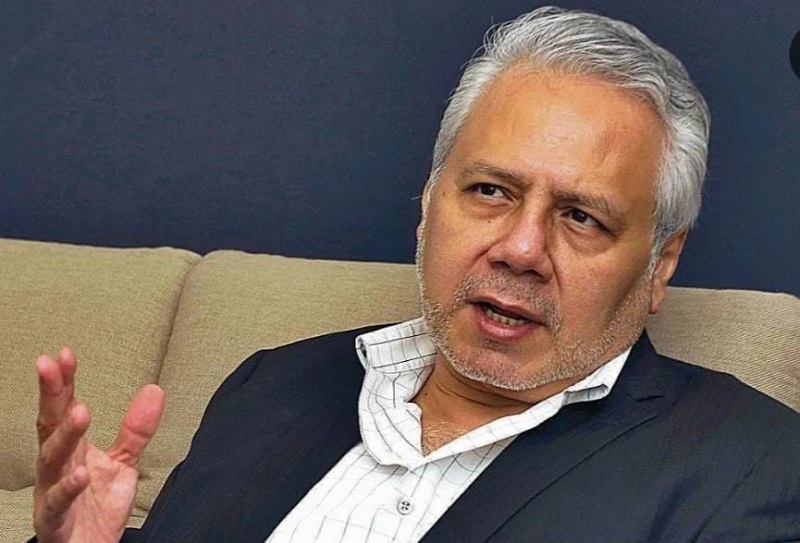
El Salvador:Detention and criminalisation of lawyer Enrique Anaya
11 August, 2025
Salvadoran lawyer Enrique Anaya, founding partner of the Anaya-SJE law firm, was detained in what human rights organisations in El Salvador have described as an illegal arrest.A specialist in constitutional law, the lawyer has established himself as one of the leading critics of Nayib Bukele’s government, going so far as to describe him as a dictator. Also, at the time of the detention of the lawyer Ruth López, Anaya denounced a number of irregularities that were allegedly committed during her detention.
On 7 June 2025 at 2.30pm, Enrique Anaya was arrested without an official arrest warrant by 12 uniformed officers and 4 civilians, who used excessive force despite there being no resistance, even pointing a gun at his son. At the time of his arrest, he was handcuffed and forced to pose for a photograph published by the Office of the Attorney General of the Republic, publicly exposing him in a humiliating manner.
After his arrest, he was not clearly informed of the charges against him for money laundering and his lawyers encountered obstacles in obtaining information about his place of detention. Between 7 and 9 June, he was transferred to various locations without any official transfer register being established. He passed through “elPenalito”, the Institute of Forensic Medicine and the Traffic Division of the National Civil Police, where his presence was confirmed on Monday 9 June at 9.15am. During this period, as his whereabouts and state of health were unknown, an alert for enforced disappearance was issued.
On Tuesday 10 June 2025, the 72 hours of his detention without a court order had elapsed, exceeding the constitutional limit; that same day, he was secretly transferred to the Zacamil hospital due to his state of health, without any official record of this. After this hospital stay, he was transferred the same day to the “La Occidental” prison. The conditions of detention proved to be precarious: cramped cells with unsanitary mattresses, bathroom facilities without doors, and work and family visits limited to five minutes, often without confidentiality.
On Friday 13 June 2025, an application for habeas corpus was lodged with the Constitutional Chamber, denouncing the arbitrary nature of the detention, the abuse of the exceptional regime and the lack of information about the charges and his state of health.
On Friday, 13 June 2025, an habeas corpus petition was filed before the Constitutional Chamber, denouncing the arbitrary nature of the detention, the abuse of the state of emergency and the lack of information about the charges and his state of health.
This habeas corpus was partially rejected on 21 June, with the court deciding to keep the lawyer in detention; however, it was partially upheld on the grounds of violation of the rights to health and defence, without, however, ordering his release. The proceedings are currentlyongoing.
Since 10 July 2025, lawyer Enrique Anaya has been transferred to a prison where he is not allowed to receive visits from his family or his lawyers. These events are taking place against a backdrop of increasing hostility on the part of the State towards organisations and legal professionals defending human rights in El Salvador. The recent approval of the Law on Foreign Agents, promoted by President Nayib Bukele, imposes severe restrictions on organisations receiving funds from abroad. Several national and international voices – including the Inter-American Commission on Human Rights (IACHR) and Amnesty International – have warned that this law could be used as an instrument to silence civil society.
Since 10 July 2025, lawyer Enrique Anaya has been transferred to a prison where he is not allowed to receive visits from his family or lawyers. These events are taking place in a context of growing hostility by the State towards organisations and legal professionals defending human rights in El Salvador. The recent approval of the Foreign Agents Law, promoted by President Nayib Bukele, imposes severe restrictions on organisations that receive funds from abroad. Several national and international voices — including the Inter-American Commission on Human Rights (IACHR)[1] and Amnesty International[2] — have warned that this law could be used as a tool to silence civil society.
The criminalisation of lawyer Enrique Anaya follows other cases previously reported by the International Observatory for Lawyers in Danger (OIAD), such as the detention of Ruth López[3] and Alejandro Henríquez[4], and represents a new milestone in the Salvadoran State’s offensive against those who defend fundamental rights, particularly in contexts of high vulnerability such as the state of emergency.
The Observatory reiterates its strong condemnation of the persistent harassment of Salvadoran legal professionals working on the defence of human rights.
The Observatory calls on the Salvadoran authorities to immediately release lawyer Enrique Anaya.
The Observatory urges the Salvadoran authorities to put an end to all forms of harassment, intimidation or violence against lawyers and human rights defenders in the exercise of their duties, in accordance with the United Nations Basic Principles on the Role of Lawyers.
[1]https://www.oas.org/pt/CIDH/jsForm/?File=/es/cidh/prensa/comunicados/2025/115.asp&utm_content=country-slv&utm_term=class-mon
[2]https://www.amnesty.org/es/documents/amr29/9100/2025/es/
